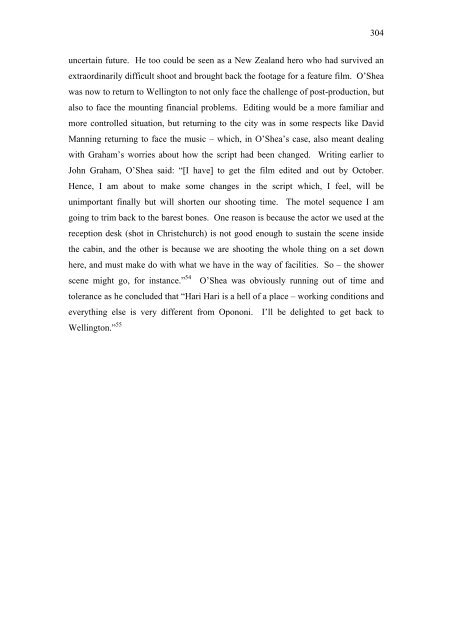Copyright Statement - ResearchSpace@Auckland
Copyright Statement - ResearchSpace@Auckland
Copyright Statement - ResearchSpace@Auckland
You also want an ePaper? Increase the reach of your titles
YUMPU automatically turns print PDFs into web optimized ePapers that Google loves.
304<br />
uncertain future. He too could be seen as a New Zealand hero who had survived an<br />
extraordinarily difficult shoot and brought back the footage for a feature film. O’Shea<br />
was now to return to Wellington to not only face the challenge of post-production, but<br />
also to face the mounting financial problems. Editing would be a more familiar and<br />
more controlled situation, but returning to the city was in some respects like David<br />
Manning returning to face the music – which, in O’Shea’s case, also meant dealing<br />
with Graham’s worries about how the script had been changed. Writing earlier to<br />
John Graham, O’Shea said: “[I have] to get the film edited and out by October.<br />
Hence, I am about to make some changes in the script which, I feel, will be<br />
unimportant finally but will shorten our shooting time. The motel sequence I am<br />
going to trim back to the barest bones. One reason is because the actor we used at the<br />
reception desk (shot in Christchurch) is not good enough to sustain the scene inside<br />
the cabin, and the other is because we are shooting the whole thing on a set down<br />
here, and must make do with what we have in the way of facilities. So – the shower<br />
scene might go, for instance.” 54 O’Shea was obviously running out of time and<br />
tolerance as he concluded that “Hari Hari is a hell of a place – working conditions and<br />
everything else is very different from Opononi. I’ll be delighted to get back to<br />
Wellington.” 55















